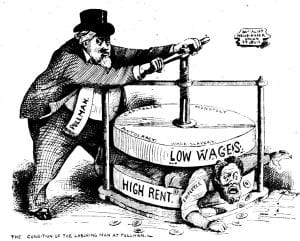Need professional help? Talk to an attorney with expertise and experience in employment rights.
If your employer is not paying your wage or overtime, find out about your employee rights and the types of compensation you may win when you take a legal route. Learn about the legal options if you have not got your wages for a long time.
Your employer must pay you at a regular time for all the non-overtime works you did. And have you been working overtime as work demanded, you are eligible for payment at the overtime rates.
Suppose you owe any regular or overtime pay from your employer. In that case, the law gives you scope to recover the unpaid wages and entitles you to compensation and, in certain situations, some penalties that an employer must have to pay you.
This article explores your workplace rights regarding wages and delays in payment and your legal options under the wage payment and collection law.
Minimum wage
Every employer must pay at least the minimum wages to all the employees. They must get the federal minimum wage or the local or the state minimum wage if any of the latter is more than the federal minimum wage. If both parties agreed on a higher rate than the federal minimum wage, the employer has to pay that.

If an employer fails to pay an employee the minimum wage or the wage at an agreed rate for all the working hours, the employee can claim damages against the employer. To receive the payment, one can either file an administrative claim with the state labor department or file a court lawsuit.
Overtime payment
If an employee overworks, he or she is entitled to wages more than the regular hours. Under federal law, any employee working more than 40 hours in a week can get remunerations working more than regular hours. If an employer does not pay the overtime amount, you may make legal claims and pursue your rights against the employer.
Compensation
Compensation comprises the money that you can recover in your wage claim against an employer. An employee can obtain the damages based on different suits and categories, as mentioned below.
Unpaid wages
The foremost thing that you are entitled to receive is your wages. If you win a lawsuit against your employer, you will get the real pay your employer failed to provide. This also includes any overtime dues.
Interest
The next thing that you will get is the interest awarded on the unpaid wages at a rate decided by the law. Instead of interest, you may get a sum of money, which is termed as “liquidated damages”. If an employer willfully did not pay your wages, the party may have to pay double the unpaid salary as liquidated damages according to the federal law.
Penalties
An employer may have to pay additional penalties for the due amount of unpaid wages. You can find about this in detail from a lawyer.
Lawyer’s fees
Your employer also has to pay the lawyer’s fees if you win the case, along with the cost of pursuing the case.
Final thoughts
It is essential to know your rights so that no employer can take undue advantage of you. If you are claiming for a small amount of wage, you may pursue the claim by yourself by filing a complaint with the labor department in your state. But if your case is complicated and you are fighting for a massive sum of money, it is wise to hire an attorney to represent your case.
Need professional help? Talk to an attorney with expertise and experience in employment rights.
A lawyer will be well versed with every aspect of wage payment and collection law and can guide you best.


Join the conversation!